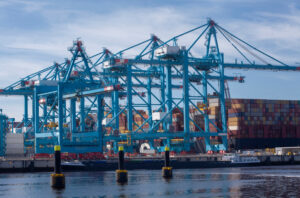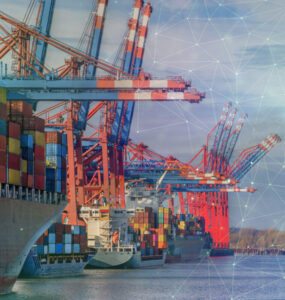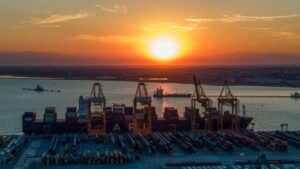During the 26th Conference of the Parties (COP26) in Glasgow, the Port of Antwerp has signed agreements to work towards greener operations through the use of hydrogen and green fuels.
During Energy Day during the COP26 in Glasgow on 4 November 2021, the port signed a Memorandum of Understanding (MoU) with the Port of Zeebrugge and the Chilean Ministry of Energy to commit to working together to make green hydrogen flows between Chile and Western Europe.
In a statement from the Port of Antwerp, it stated that it, alongside Zeebrugge, are convinced that the future Western European energy system will need to focus on domestic wind and solar energy, as well as imported volumes of renewable hydrogen.
“When we look back at the impact of COP26, I sincerely hope we will call it ‘the climate action’. The summit where promises were made and kept,” said Jacques Vandermeiren, CEO of the Port of Antwerp.
“That’s the only way we will be able to tackle this challenge, by saying what we do and doing what we say. At the Port of Antwerp, we will continue to push forward our ambitions to make sure our entire fleet is eco-friendly and to further develop as a multi-fuel port, offering the alternative fuels that sustainable shipping requires.”
Tom Hautekiet, CEO of the Port of Zeebrugge, added “We are proud to know that Chile, the most significant potential exporter of green molecules, wants to cooperate with the ports of Antwerp and Zeebrugge. This opportunity will allow us to realise our shared ambition of importing hydrogen to Europe together.
“The fact that they consider Zeebrugge to be a suitable import port confirms our position as an important energy hub. Moreover, our close cooperation will herald a new chapter for the energy transition in Europe.”

The Port of Antwerp has also signed a cooperation agreement with the Port of Montreal to support the creation of the first green shipping corridor in the North Atlantic. This was also signed at COP26 in Glasgow.
Through the agreement, the two parties pledge to mobilise their respective public and private sector partners alike in the assessment, identification, development, and adoption of shared or complementary solutions and infrastructures.
“Along with local and international partners, the Port of Antwerp is leading the transition to a cleaner, more climate-friendly world based on renewable and circular energy,” commented Vandermeiren.
“The Port of Antwerp is one of the largest bunkering ports in the world. As such, the Port of Antwerp wants to play a pioneering role in the integration of carbon-neutral fuels in the bunkering market. In this way, together with the Port of Montreal, we are working on the transition to a multi-fuel port, with renewable fuels that are better for the climate and the quality of the air.”










